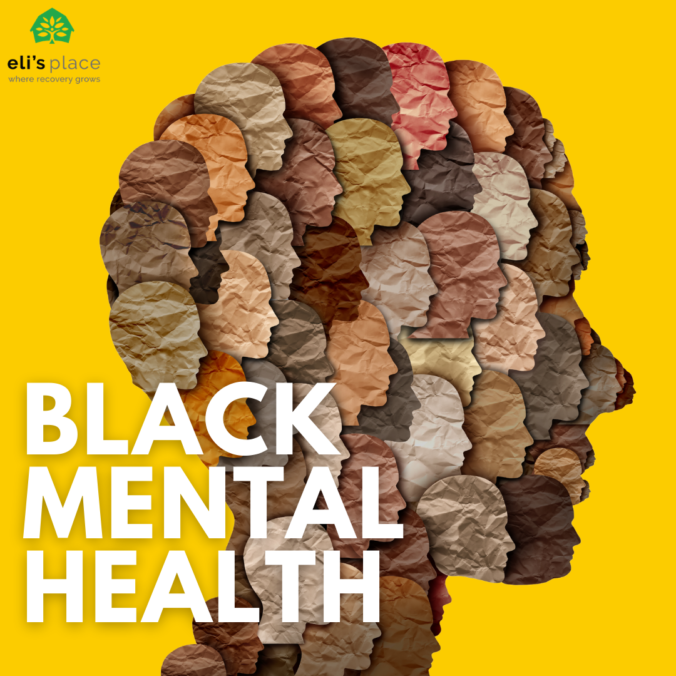After the tragic events this summer and the subsequent rallying cry led by Black Lives Matter, this year’s Black History Month feels different. The official theme – The Future is Now – speaks to the urgency required in addressing systemic racism and exploring the transformative work now being done by Black Canadians and their communities. While the work of addressing inequality is ongoing across many sectors, at Eli’s Place we are particularly interested in the developments taking place in mental health for Black Canadians.
A Diverse Population
Canada’s Black population is extremely culturally and linguistically diverse. Did you know that a higher percentage of Black Canadians speak French at home (28%) when compared to the total population (23%)? Interestingly, more than 100 mother tongues are reported across the country by Black Canadians. While Jamaica, Haiti, and Nigeria are the top three countries of birth for Black immigrants to Canada, more than 170 different places of birth are recorded in the data collected by StatCan in 2017. There is also a long-standing Black population with roots in Canada reaching back 400 years. Significantly, taken as a whole, the Black population is younger than the overall Canadian population. As reported in 2017, the median age of the Black Canadian population was 29.6 while the median age of the total population was 40.7.
A decade ago, the Mental Health Commission of Canada recognized the need for diversity-informed care in their policy document Toward Recovery and Wellbeing. Specifically, the report states that: “The ability of service providers to reflect critically upon their own cultural values, to recognize and respect the cultural values of those with whom they are working and to take historical and political contexts and power imbalances into account is fundamental to the development of a trusting partnership that will enhance health and social outcomes for people regardless of their background.”
A single word stands out in that statement: Trust. All mental health journeys – from seeking care to living in recovery – require a bond of trust.
Mental Health for Black Canadians: The Reality
Many years after that policy document was devised, a troubling fact about the impact of mental illness on Black Canadians remains. There is still a lack of data about the unique experiences of this community when engaging with mental health services and a lack of insight into the barriers to services that exist. What is emerging through research is the disproportionate burden of mental illness experienced by members of the Black community.
The issues behind the statistics are difficult to tease apart; however, researchers point to several possible explanations. Persistent stigma related to mental health and mental illness within the Black community itself presents a barrier to seeking help.
At the same time, access to culturally appropriate treatment and treatment providers who are educated about and sensitive to the Black experience (both historic and contemporary) is limited. The ability to access treatment from a provider with a similar cultural background can make an enormous difference to those seeking help.
The third key factor in explaining this disproportionate burden is an economic one. According to Black Mental Health Canada, Black individuals are “more likely to qualify as low-income, experience unemployment and be uninsured.” Everything from accessing time off work for appointments, to paying out of pocket for psychotherapy or drug treatments not covered by OHIP, can present a barrier to accessing care. Statistics Canada notes that Black Canadians represent just under 3% of the Canadian population, yet represent 18% of those living in poverty.
This impact of poverty as a determinant of health has been laid bare by the struggle against Covid19. BIPOC (Black, Indigenous, and People of Colour) communities have been disproportionately impacted by Covid both in terms of the disease itself and the mental health impacts associated with the virus.
Couple these factors with the added burden of coping with systemic racism and the increased risk for mental illness becomes very real. Dr. Kwame McKenzie wrote in an article in the Toronto Star recently, that Black Canadians face increased rates of psychosis and depression by 200 and 300 percent when compared to other Canadians.
Community Action
Tremendous community-led initiatives are addressing the health and well-being of this often marginalized population. Led by and focused on the Black community, these initiatives are breaking down stigma within the community, increasing service options, and reducing barriers to care.
From national organizations like The Black Health Alliance of Canada which has a broad mandate to research the key determinants of health, including racism, to more local organizations such TAIBU, a multidisciplinary health centre serving the Black community in Scarborough, there is much to celebrate.
This year the city of Toronto has identified March 2 as Black Mental Health Day, which will become an annual day of awareness.
Recognizing the unique mental health needs of the Black Canadian community is imperative. Indeed, The Future is Now! Eli’s Place salutes the many grassroots organizations that are recognizing a need and that seek to fill it by creating trusting partnerships.
Eli’s Place will be a rural, residential treatment program for young adults with serious mental illness. To learn more about our mission and our proven-effective model click here.




